TikTok Shop Raises Seller Fees Across Europe as Platform Pushes for ‘Content-Driven Commerce’ Expansion
Reading Time: 3 minutesTikTok Shop is raising its sales commission for merchants across five active…
With the worldwide & Indian e-commerce market growing at a speedy pace, we tend to see plenty of recent trends. Once beginning out a brand new e-commerce venture, which eCommerce platform is best for your business?
There are plenty of parts that require to be worked out – right from the e-commerce platform which this blog spreads light on vastly. Payment entry to integrate together with your eCommerce website, Product Photography, Social Media Strategy, client acquisition, client retention, program optimization, and a full ton of the additional.
There are a ton of specialists out there who will facilitate you with each of those parts otherwise, you may take a digital selling course or obtain a book on digital selling to familiarise yourself.
The first step once beginning out is that the e-commerce platform and therefore, the variety of such platforms and content management systems accessible has full-grown over the years.
In such a situation, working out that platform to use once you’re wanting to create your online store is often a reasonably confusing task. It’s particularly when you aren’t from a technical/e-commerce background.
This post intends to create your analysis work easier by serving to you select the platform best fitted to your desires.
The Best Content Management Systems
- Magento click here
- WooCommerce click here
- Opencart click here
The best eCommerce platforms
- Shopify click here
- BigCommerce click here
- Odoo Development by Bss Commerce click here
- Volusion click here
- CS-Cart Multi-Vendor Edition click here
There are 2 choices accessible for building an e-commerce web site – one will either use managed (hosted) e-commerce platforms like Shopify and BigCommerce or ASCII text file Content Management Systems (CMS) like Magento.
As the name indicates, a hosted eCommerce platform is hosted on a server that you just won’t have access to, whereas CMS-based websites are self-hosted on server area (such as Bluehost) you may purchase. that choice to select can rely plenty on your specific desires similarly as your level of technical involvement.
Below is a list of advantages of each that may facilitate your create an alternative between the 2 supported your business current requirements:
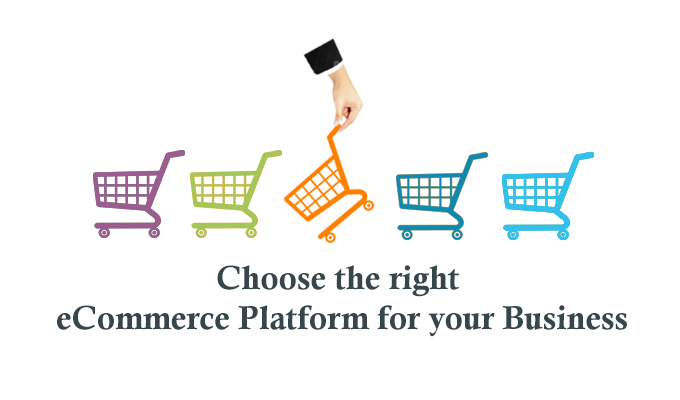
Source: Henceforthtek
The server can even be a crucial facet of however your e-commerce website is made and that we typically use the UNIX system based mostly servers being provided by Bluehost or Amazon Internet Services. we tend to typically refrain from victimization Windows based mostly servers.
Once you’ve created your alternative on going ahead with either of the 2 platforms, here is a list of the top eCommerce platforms choices you may explore in every niche:
If you’ve determined that a CMS is what’s going to fit your desires best when you looking out for the top eCommerce platforms. Below are the best e-commerce CMS accessible within the market at the instant. the foremost necessary factors which are able to inherit thought once zeroing in over the CMS.
It would be the provision of extensions, availability of support, practicality, customizability and therefore the value of development and maintenance. All of them are open supply and have free community versions and paid enterprise versions.
With near 21% of the world’s prime 100,000 e-commerce sites are designed on the Magento platform. It’s out and away from the foremost well-liked and one amongst the most effective e-commerce CMS’ getting used these days.
Its biggest benefits are the massive variety of plugins and extensions accessible which permit the addition of any new practicality, the convenience of availableness of intimate with developers similarly as a lower overall development and maintenance value.
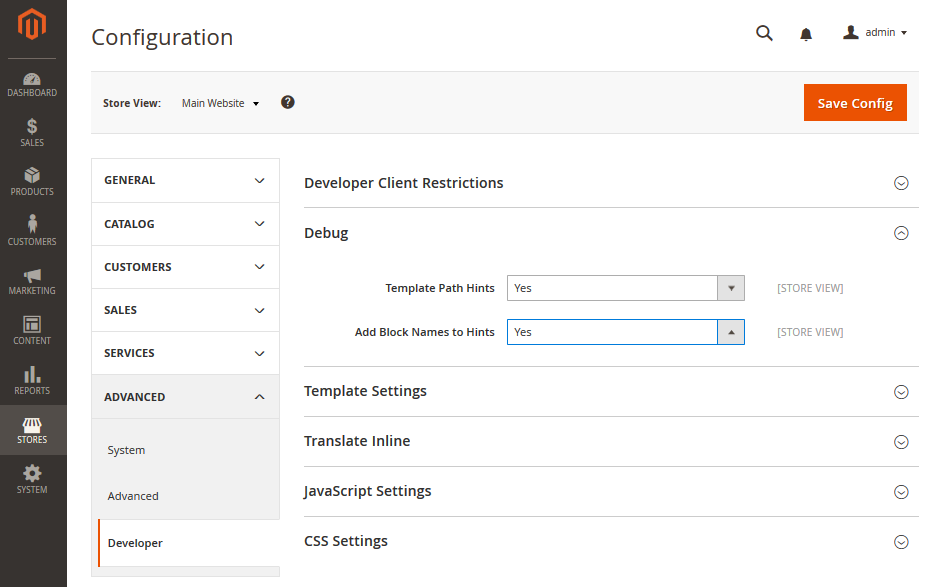
Source: Magento
Pros
Cons
WooCommerce could be a WordPress plugin used for building e-commerce websites on the WordPress platform. an outsized variety of WordPress themes have the WooCommerce practicality constitutional.
The plugin provides most of the options that are accessible within the alternative open-sources CMS listed here. WooCommerce would possibly see additional easy and cost-efficient for smaller businesses similarly as for those accustomed to WordPress.
Pros
Source: WooCommerce Docs
Easy Integration with emailing platforms like Mailchimp so you’ll keep to bear together with your customers.
Cons
Opencart is another open supply CMS for e-commerce. though it has one amongst the best to use back-ends, its support systems don’t seem to be as comprehensive as compared to the opposite platforms listed.
Source: OpenCart Documentation
Pros
Cons
If you’ve determined that an internet store creator would higher fit your business, then below are the five best platforms accessible for you to decide on from. 2 of these – Zepo and Kartrocket are chosen with the Indian market in mind, as being largely domestic players, they may have a far better understanding and feel of the native market.
Shopify is one amongst the primary names that involves mind once one thinks of an internet commerce platform. With 74,418 sites victimization Shopee, it’s one amongst the foremost well-liked similarly.
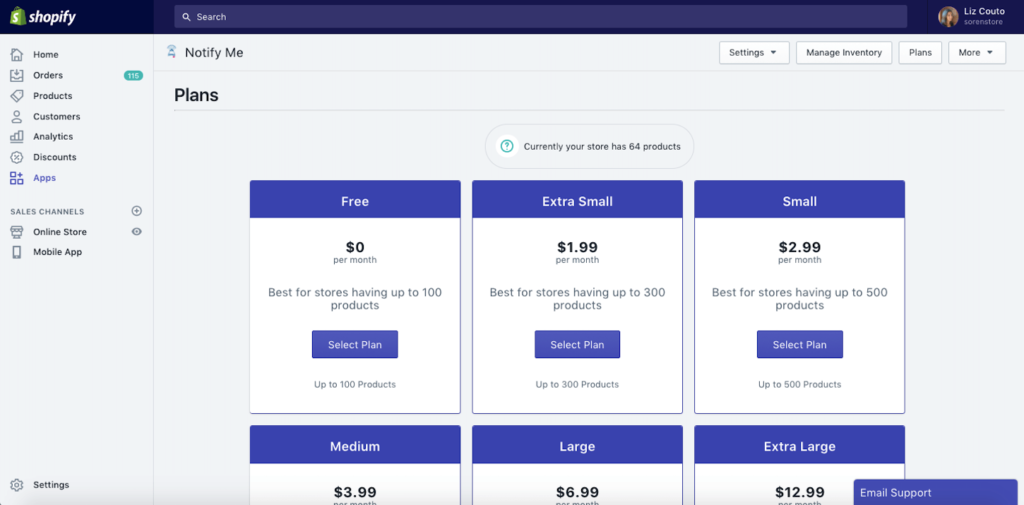
Source: Shopify
Pros
Cons
Pricing
Starter – $14/month,
Basic – $29/month,
Professional- $79/month,
Unlimited – $179/month.
Bigcommerce is another well-liked platform, with seventeenth of the highest 100,000 sites victimization hosted e-commerce solutions; and 59,977 sites overall, being designed on Bigcommerce.
Source: BigCommerce
Pros
Cons
Pricing
Silver – $29.95/month,
Bronze – $199.95/month
Gold – $79.95/month,
Odoo is an all-in-one platform with many helpful modules to help your business empower its management systems. With the character of open-source software, Odoo can be easily adapted to any function. The latest version now is Odoo 15, which was released in October 2021 to “allow the business to run more efficiently and effectively”. Now Odoo has built a network with over 3500 partners, and 7 million users worldwide. The popularity of this platform is increasing because of this initiative interface and easy-to-use method. Your business can choose from two versions: Odoo Community and Odoo Enterprise based on your requirements and needs.
Pros:
Cons:
So, if your business needs an Odoo expert team who can go with you from scratch, BSS Commerce can be a perfect choice. Check out these full Odoo development services at BSS Commerce.
Volusion additionally has nearly as huge a share of the highest one hundred,000 sites victimization hosted e-commerce solutions – nearly 17%; with over 19% of its market share is within the United States.
Source: Volusion
Pros
Cons
Pricing
Mini – $15/month,
Gold – $35/month,
Bronze – $75/month,
Professional – $135/month
Wcart is a headless commerce solution to develop a custom-built eCommerce platform that hosts numerous features to run and manage an eCommerce business. An all-in-one eCommerce platform that allows businesses ready to sell and scale in no time.
Pros:
Cons:
Pricing:
Unlike others on this list, CS-Cart’s Multi-Vendor edition is a lot more standalone, a cohesive resolution that doesn’t depend upon extensions or monthly subscriptions. Instead, you create a happening payment and also the license and package are yours. But, here’s the catch.
This happening payment is of $1,450 – an add not offered to several tiny businesses simply beginning out. Despite the on top of, CS-Cart’s Multi-Vendor edition comes with spectacular options for each admin and vendors.
Source: CS-Cart
This resolution provides you with multiple layers of body access which means that as you grow, you’ll conjointly scale your team, therefore sharing a number of the daily responsibilities of running your marketplace.
Additionally, the platform comes with a subtle merchandiser payout system, moreover as configurable merchandiser plans so you’ll confirm whether or not you wish to charge the identical commission across the board, a flat rate, or a proportion.
CS-Cart’s Multi-Vendor edition comes with its own separate merchandiser panel that provides every merchandiser their own mini-store wherever they’ll produce a bio, add a product, images, videos, and more. the seller panel conjointly offers retailers period and manual shipping calculations moreover as account balances, sales reports, and statistics in order that they will track their progress.
The license is valid for a period of time and includes 1-year access to upgrades at no cost and three months of free technical support whereas you produce your marketplace. It conjointly comes with a 30-day a reimbursement guarantee.
Pros
Cons
Price: The license prices $1,450
Every platform and CMS has its and minus points and selecting the correct one depends on your business model and necessities. If you’re getting into for a hosted platform, Shopify or Zepo (if you favor a neighborhood player) may be the most effective choices, whereas if you’re searching for a Content Mangement System, then Magento would most positively work best.
This, however, is predicated on our experience and that we would like to hear what your expertise says. As a final word, switch platforms or content management systems once a store is up and running isn’t extremely a simple method and may really be a nightmare.
So, ensure you’re taking a prudent and educated call with an honest quantity of foresight.
Read more:
Insights On The Evolving Trends Of B2B Through M-commerce
Few Must Have Features For Your E-commerce Website
Smartphones are driving retail growth across the world, what are you doing?

Reading Time: 3 minutesTikTok Shop is raising its sales commission for merchants across five active…

Reading Time: 11 minutesBy now you have seen your BFCM 2025 numbers. The harder question…

Reading Time: 3 minutesAbout the Brand Name: Vanity Slabs Inc Industry: Trading Slabs- Vanity Slabs…
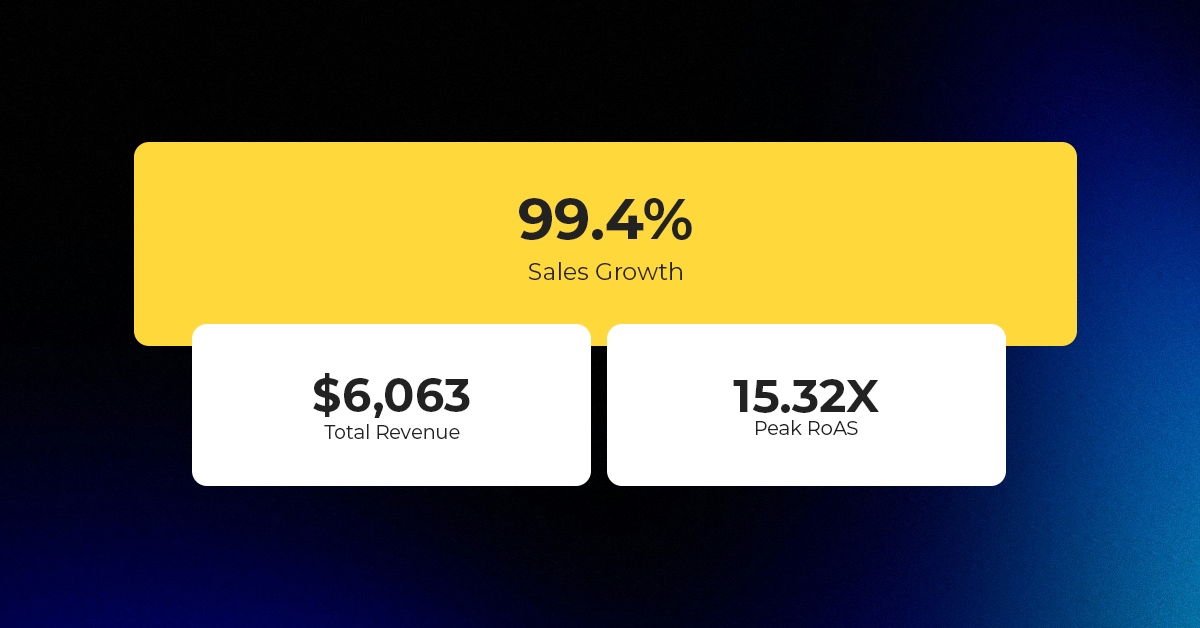
Reading Time: 2 minutesAbout the Brand Name: Ramjet.com Industry: Automotive Parts & Accessories Location: United…

Reading Time: 2 minutesAmazon is rolling out strategic referral fee reductions across five major European…
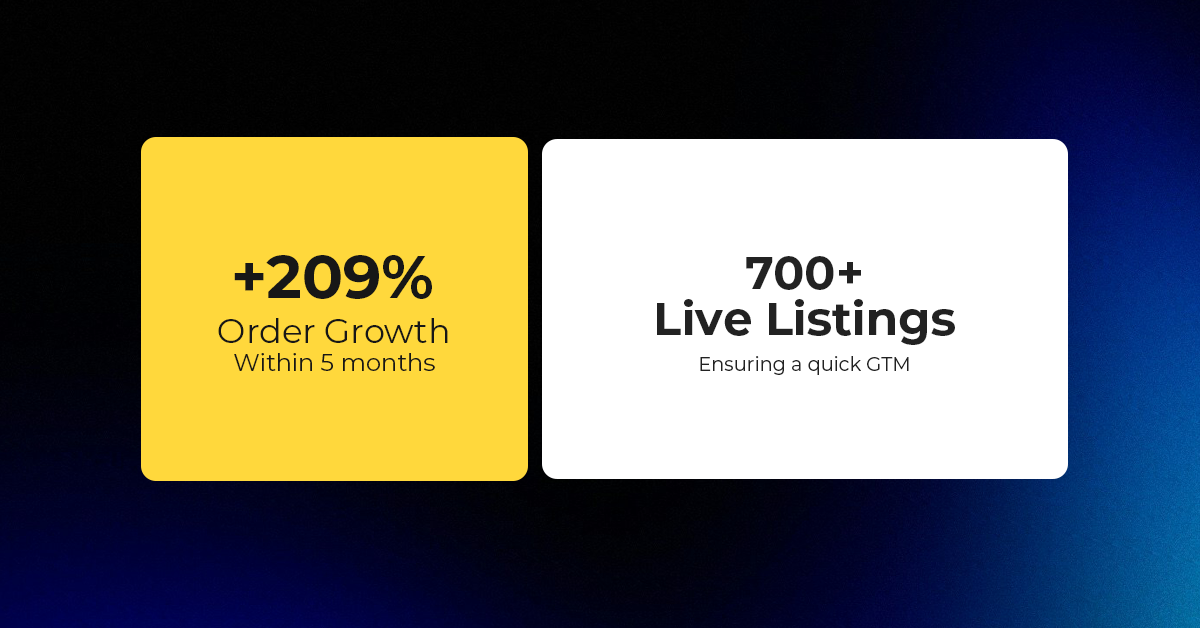
Reading Time: 4 minutesQuick Summary: Scaling Lifestyle Powersports on eBay with CedCommerce Challenge: Zero marketplace…

Reading Time: 4 minutesTikTok has surpassed 460 million users across Southeast Asia, reinforcing its position…

Reading Time: 3 minuteseBay has released its final seller news update for 2025, with a…

Reading Time: 3 minutesAmazon has clarified its stance regarding speculation around a potential breakup between…

Reading Time: 4 minutesWalmart is accelerating its push into next-generation fulfillment by expanding its drone…

Reading Time: 4 minutesFaire, the fast-growing wholesale marketplace connecting independent retailers with emerging brands, has…

Reading Time: 4 minutesB2B buying in the United States is undergoing a fundamental behavioral shift…

Reading Time: 3 minutesSummary Cyber Monday 2025 has officially become the largest online shopping day…

Reading Time: 2 minutesSummary Amazon kicked off December with two major developments shaping the future…

Reading Time: 2 minutesSummary Walmart has entered December with two major moves that signal a…

Reading Time: 2 minutesBlack Friday 2025 delivered the strongest U.S. eCommerce performance in history, as…

Reading Time: 13 minutesStill approaching BFCM with generic discounts, last-minute price cuts, or scattered promotions?…

Reading Time: 3 minutesTikTok Shop reached a major milestone during its largest U.S. “Global Black…

Reading Time: 3 minutesOpenAI has announced a new AI-powered shopping research tool designed to help…

Reading Time: 9 minutesIf your TikTok Shop listings often sit in review or your visibility…
Thanks for sharing the blog on ecommerce platforms.
Hi Centreal bazaar,
I am greatful you liked it. Thanks for putting up the encouraging words. You can explore more nitty gritty facts about ecommerce platforms here.
Leave a Reply